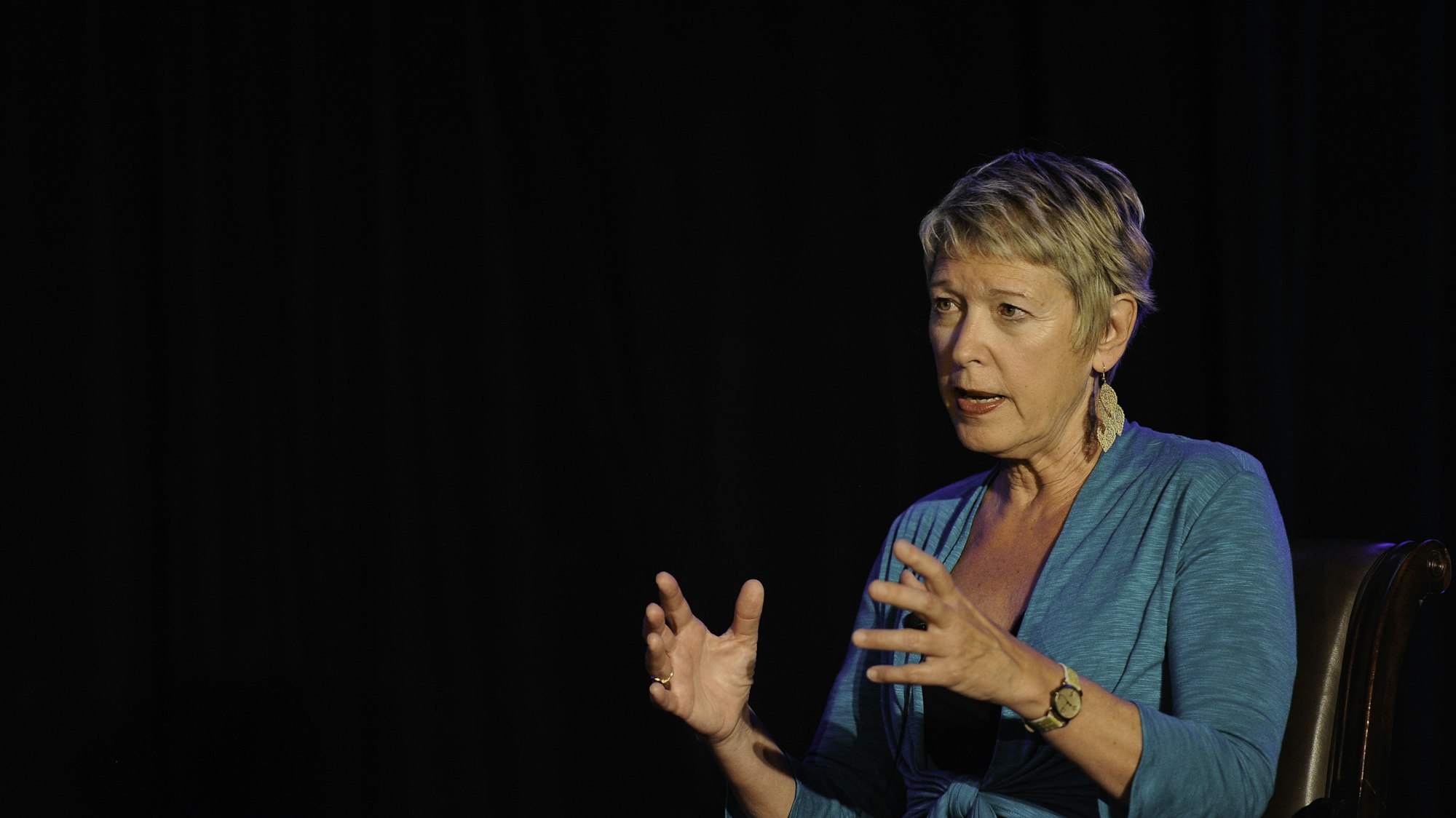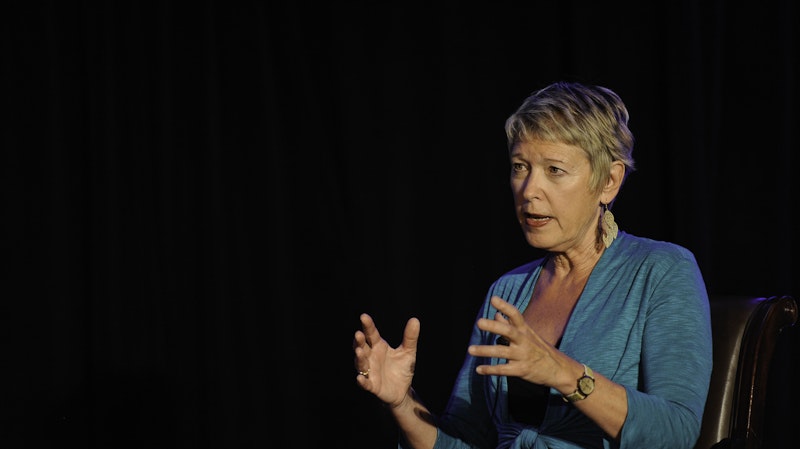
How to Land Your Kid in Therapy: Overparenting and Its Perils
Setup
- 2012 Festival
“I think of over-parenting as having three components. So when you do something your child can already do, you've over-parented because you've taken away the opportunity to do something the child's capable of - that means he feels confident, that means he has true self-esteem, not this sort of bastardized idea of self-esteem.
So don't do what your kid can already do. And don't do what is just outside of your kid's area of expertise. We call it the zone of proximal learning because that's where a kid pushes themselves a little bit. And if you need to step in, if they can't get it, you can step in but let them have a shot at it. And I think the third idea about over-parenting that I have is when it's really your own needs that are being met as opposed to your kid's needs.” - Madeline Levine, psychologist; author, Teach Your Children Well: Parenting for Authentic Success
As parents, if we step in to combat every discomfort our child faces, give up our own lives to become deeply ingrained in theirs, and take on the role of friend, are we over-parenting? Some psychologists say yes, but there's a spectrum. During this panel, psychologists Polly Young-Eisendrath and Madeline Levine join psychotherapist Lori Gottlieb for a conversation about finding a happy middle ground between over-parenting and under-parenting. Journalist Katie Couric guides the conversation that's filled with anecdotes from the speaker's own lives. Are parents fixing things too much? Or, giving out too many gold stars? Is such heavy attention making it harder for kids to grow up?
Learn More
Additional Information
Explore More
Arts

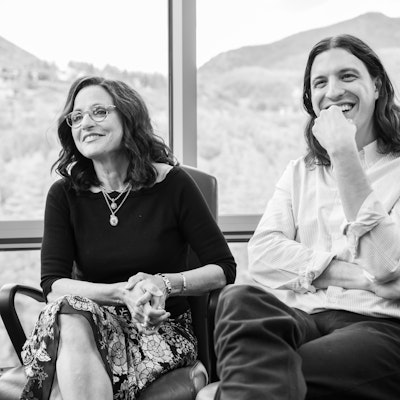
Julia Louis-Dreyfus has kept us laughing for years in her roles as Elaine Benes in “Seinfeld” and Selina Meyer in “Veep.” But her most recent work has her shifting from comedy...


It’s a tough time to try and express the complexity of life honestly. Writer Chimamanda Ngozi Adichie doesn’t shy away from truth-telling and believes we should all step up an...


Creativity is as intrinsic to our species as any of our basic instincts, says Debbie Millman, designer and curator. But for millions of people in the United States, the abilit...


The entertainment industry has had to pivot and refresh time and again to adapt to constant changes in format, business models and attention spans. Somehow, producer Brian Gra...


Millions of children across America don’t have art classes in school and don’t grow up going to art museums and galleries. They might be hours away from the closest museum, or...

October is National Book Month, and we’re celebrating by looking back at some of our favorite conversations about reading and writing from the Aspen Ideas Festival and Aspen I...

Jump in by watching our 15 most popular talks of all time. From black holes to jazz and civil rights to psychology hacks, we've collected the talks that remain audience favori...
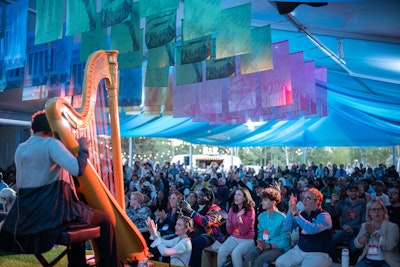
The arts are not just forms of expression, but powerful forces that shape culture and the human experience, both reflecting and influencing our world. Join renowned artists, w...

As one of the foremost reporters of his generation, Nicholas Kristof has been witness to century-defining events and atrocities around the world. How has he managed to weaponi...
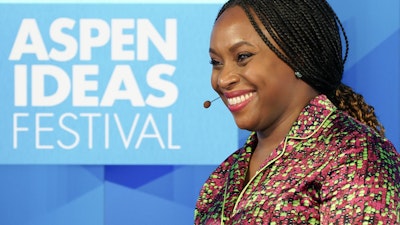
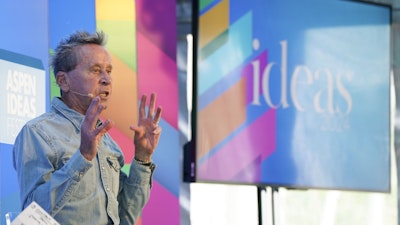
Amid seismic shifts in the entertainment world, Oscar-, Golden Globe- and Emmy-winning Brian Grazer has managed to keep pivoting to new ways to tell stories in movies, TV and...

In the last 30 years, conglomerates from Amazon to Netflix to Spotify have changed the way we interact with media, books, fashion and music. Creatives are struggling to mainta...

Hurray for the Riff Raff is more than Alynda Segarra’s musical moniker; they spent their youth hopping trains across America, capturing that life in youthful poetry then and a...

Images communicate truths, and also lies. Learning to pay attention to photographs can help us discern. An art and cultural historian and a visual artist host a master class o...

When people in prison are given creative outlets, the impact is life-changing. Hear from a hip-hop artist setting up prison recording studios, an architect designing more huma...

Whether as Elaine Benes from “Seinfeld” or Selina Meyer from “Veep,” Julia Louis-Dreyfus delivers laughter. But in the upcoming film “Tuesday,” she communicates with death — i...
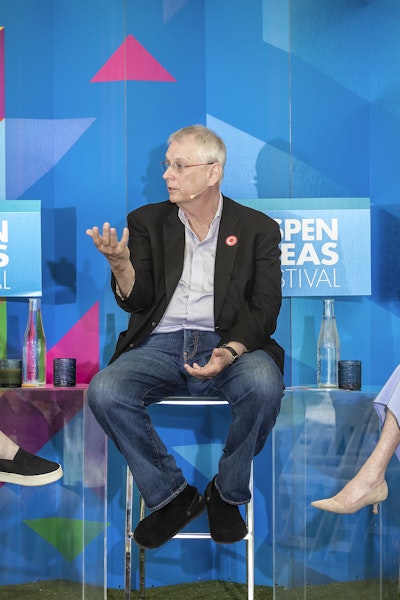
You may not know what typeface this sentence is written in, but typography is crucial to how we convey, process and retain information. How has the form evolved? Hear from des...

Here’s a radical proposal: Make access to the arts free for everyone. Leaders on a mission to bring Americans into art spaces discuss the transformative power of the arts, and...

Maybe all of us feel like we’ve been raised by Hollywood, but being raised in Hollywood is a different kind of drama. Actor, producer and director Griffin Dunne joins friend (...

Rosalind, Viola, Portia and Beatrice are unforgettable roles in Shakespeare’s plays. But there were real women behind these characters — women who spoke out against patriarchy...


